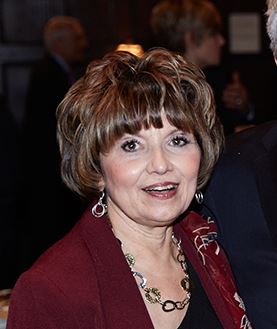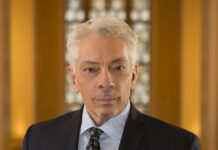
(By Deborah Parenti) These are far from normal times. And not to acknowledge that fact doesn’t change it. More than ever, while we are holed up in our own spaces and distanced from so many customary everyday habits, whether exchanging a morning greeting around the coffee pot or chatting in the parking lot while waiting for kids to emerge from school, we need to stay connected.
We are, after all, in this together. It’s why the Italians are coming out on their balconies every evening at six o’clock to join in song and reassure their fellow citizens that they are okay.
I would bet the volume of messaging, calls, and Facetime chats have also spiked over the past weeks and will no doubt continue. Connection becomes even more critical in times of crisis.
This is a time when radio can shine and has an opportunity to provide an important service to its communities.
Whether its live and local (always a preference for most) or yes, even syndicated, there are so many ways, on so many levels that radio can once again demonstrate its innate ability to be a lifeline, most especially for the elder population which is as risk, not only in a physical sense, but in terms of mental well-being. Isolation among elders, especially those who are miles from family or close friends, can be frightening and unsettling.
That said, these elders comprise a generation that grew up with radio. That means the relationship with the medium has already been established. Radio can be a companion as well as a source of vital information during this critical time in history: where to call for assistance; how to cope with loneliness and anxiety; what the current status of this national emergency is right now. All questions that can be answered by a friendly, familiar voice many have come to trust over the years. And, especially when it’s live and local, that translates to someone who can take their calls, providing an even greater bond of connection and communication.
I’m going to throw a wild notion out here – one which may be met with the naysaying that it can’t or won’t be done. Maybe, maybe not. But again, these are not normal times. Business as usual has been thrown out the window in today’s crisis environment, as have most of the norms we associate with operating our businesses.
What if stations flipped back to local programming during some of the dayparts currently being voice-tracked, otherwise pre-produced, or filled with syndicated broadcasts? Allow for more spontaneous updates specific to a community and, where possible, give listeners the chance to call in with comments and questions? It doesn’t have to necessarily “break format.” Music stations could still play music but, if live and local, also giving communities more real-time and targeted information. Sports stations looking to fill game times would also be a natural for opening the mic with talk that extends beyond the usual home run and touchdown banter.
And if the available talent is not currently on staff, there are no doubt plenty pros sitting on the sidelines in markets everywhere who could fill in during this time of emergency.
Radio broadcasters are often referred to as public trustees, charged with serving the needs and interests of their communities of license. That has possibly never been more important than it is today.
What we are experiencing as a nation and as a world call for unusual and out-of-the-box thinking. That includes radio.
Deborah Parenti is Publisher of Radio Ink. She can be reached at [email protected]





